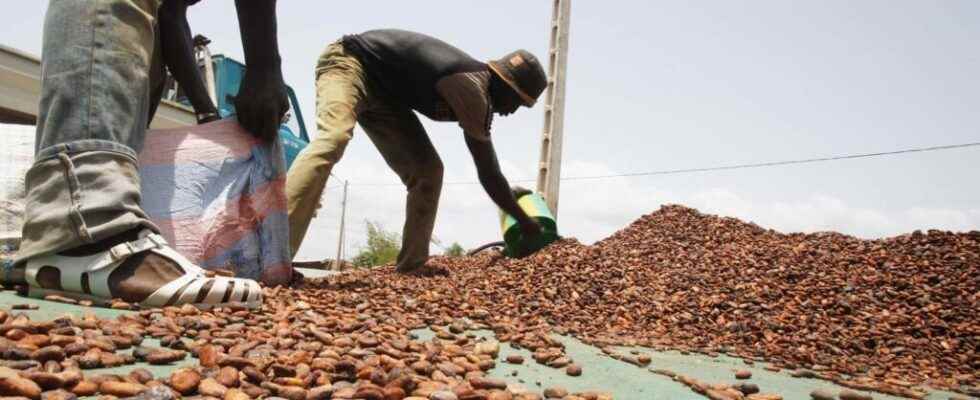A World Cocoa Congress was held last week in Montpellier. It was devoted to new agronomic advances, but also to solutions that could allow the five million producers to live from their work, which is not the case today. So is there overproduction or speculation? The participants of this congress wondered about this situation.
” The producers don’t understand, they don’t understand the price… Despite what they earn, you can tell they can’t make ends meet. They do other things on the side, but it’s really difficult for them. »
Thomas Zongo, president of an Ivorian cooperative, cannot hide his dismay. The price of cocoa this year is 10% lower than last year, while inflation is soaring. However, a historic agreement was reached in 2019 in which the chocolate giants pledged to pay them a ” decent income differential “, or 400 dollars for each ton purchased. A decline that has lasted for years, and which has serious consequences for the sector.
” Most important is the lack of decent incomes for the majority of farmers who produce cocoa, insists Martijn ten Hoopen, the cocoa correspondent for CIRAD, the leading research organization on this production. We had an increase in demand, accompanied by an increase in supply, unfortunately achieved by an increase in surface area which is linked to the other problem of cocoa production: deforestation. »
► To read also: Ivory Coast: despite a fixed price, cocoa producers do not make ends meet
The area planted with cocoa in the world has in fact increased since the 1960s from four to twelve million hectares. A temporary overproduction can therefore be a factor that explains the fall in prices, but not only. ” As soon as we have a small surplus of production, prices fall, underlines Michel Arrion, director of the International Cocoa Organization. But last year, with a deficit of 300,000 tons, we did not see any increase in prices. So this explanation only works one way. »
Speculation on the London and New York stock exchanges, where world cocoa prices are fixed, is on the other hand doing very well. ” Almost every week, we buy or sell the entire annual production! So a very large activity of buying and selling paper cocoa, that is to say contracts for three, six or nine months, but which almost never materialize in physical delivery », continues Michel Arrion.
The International Cocoa Organization therefore decided at the end of this Montpellier congress to look into the project of a stock exchange which would be based in Africa, and whose transactions would concern real physical cargoes, to give back a little more power to producing countries.
► To read also: Deforestation: does Ivorian cocoa comply with the new rules imposed by the EU?
